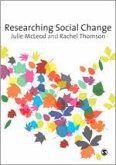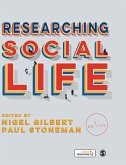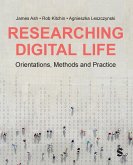'This book is refreshing, both as an addition to the general literature and as a text that considers cultural and social issues in studies relating to improving the situation of vulnerable people.... [T]his book will be a helpful, accessible and interesting resource for novice and experienced researchers alike in a number of fields' - Nurse Researcher
'Pranee Liamputtong has offered a well organized, clear and accessible work in Researching the Vulnerable...this book can offer very good guidance to the postgraduate student who is willing to focus in qualitative research methods, but also to an experienced researcher who may consider testing out its procedures or eventually is attempting to put into practice innovative qualitative research procedures' - Sociological Research Online
Researching Vunerable People takes as its starting point the particular considerations and sensitivities of being a researcher faced with a subject group at the margins of society, and explores the ethical, practical and methodological implications of working with such groups.
Pranee Liamputtong is an experienced textbook author, and in this book she attempts to explore qualitative methods using examples, drawn from around the world, from the wide variety of contexts that might count as 'researching the vulnerable'. Numerous salient points for the conduct of research within vulnerable groups of people, including ethical and moral issues, are considered, and discussed in the context of sensitive and innovative research methods.
'Pranee Liamputtong has offered a well organized, clear and accessible work in Researching the Vulnerable...this book can offer very good guidance to the postgraduate student who is willing to focus in qualitative research methods, but also to an experienced researcher who may consider testing out its procedures or eventually is attempting to put into practice innovative qualitative research procedures' - Sociological Research Online
Researching Vunerable People takes as its starting point the particular considerations and sensitivities of being a researcher faced with a subject group at the margins of society, and explores the ethical, practical and methodological implications of working with such groups.
Pranee Liamputtong is an experienced textbook author, and in this book she attempts to explore qualitative methods using examples, drawn from around the world, from the wide variety of contexts that might count as 'researching the vulnerable'. Numerous salient points for the conduct of research within vulnerable groups of people, including ethical and moral issues, are considered, and discussed in the context of sensitive and innovative research methods.
'This book is refreshing, both as an addition to the general literature and as a text that considers cultural and social issues in studies relating to improving the situation of vulnerable people.... [T]his book will be a helpful, accessible and interesting resource for novice and experienced researchers alike in a number of fields' - Nurse Researcher
'Pranee Liamputtong has offered a well organized, clear and accessible work in Researching the Vulnerable...this book can offer very good guidance to the postgraduate student who is willing to focus in qualitative research methods, but also to an experienced researcher who may consider testing out its procedures or eventually is attempting to put into practice innovative qualitative research procedures' - Sociological Research Online
'Pranee Liamputtong has offered a well organized, clear and accessible work in Researching the Vulnerable...this book can offer very good guidance to the postgraduate student who is willing to focus in qualitative research methods, but also to an experienced researcher who may consider testing out its procedures or eventually is attempting to put into practice innovative qualitative research procedures' - Sociological Research Online








